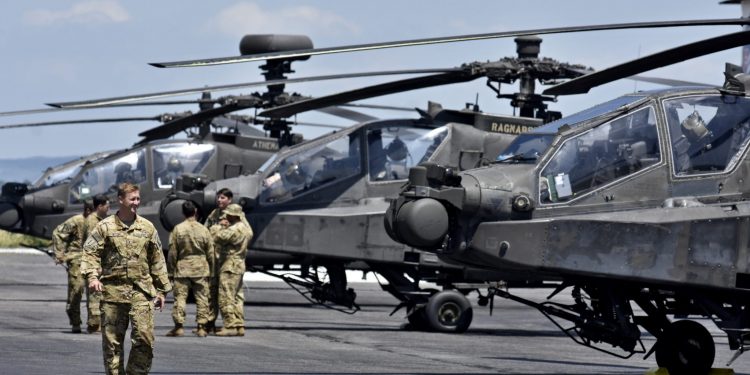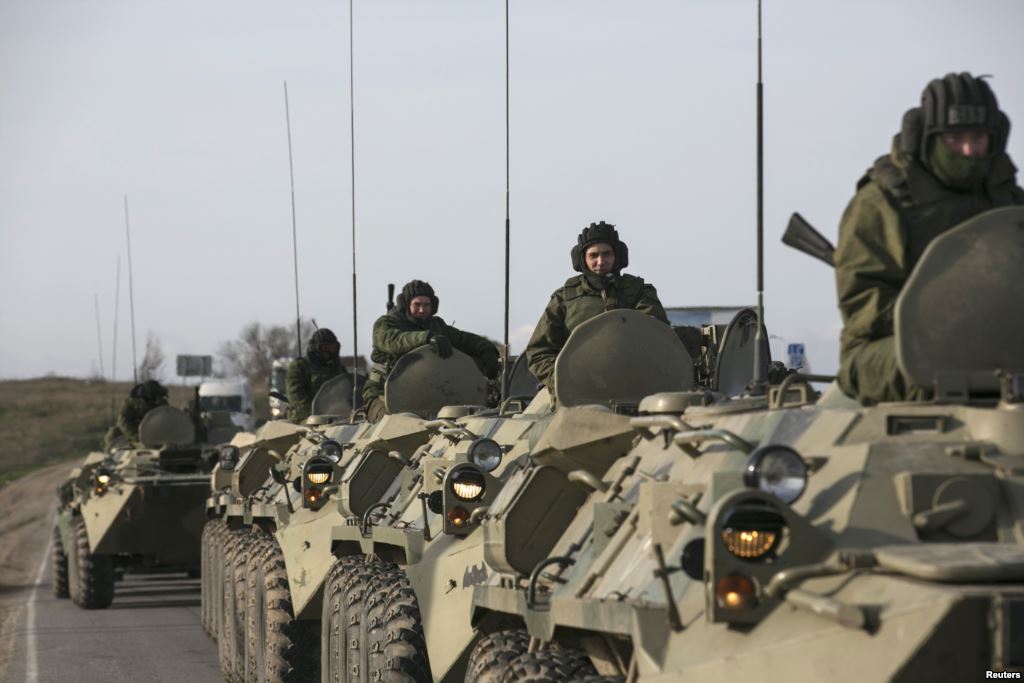US troops arrived in Slovakia on Thursday to take part in a multinational training exercise amid regional tensions with Russia and as the NATO member struggles with anti-American sentiment.
“The Saber Strike 22 exercise focuses on strengthening cooperation amongst NATO allies,” Slovak Chief of Defence, General Daniel Zmeko, told journalists.
“This exercise will test our ability to work together with our strongest and most important strategic partner in the field of defence,” he added when the first plane carrying military equipment from Germany landed at the Kuchyna military base.
The Saber Strike exercise is scheduled to run from March 5 to 10 at the Lest training centre and the Sliac air base, according to the unit spokesman John Ambelang.
“The exercise will involve 1,200 US Army soldiers and 500 vehicles. The first convoy arrived in Slovakia from Germany early Thursday morning,” Ambelang told reporters.
The exercise comes at a time of fierce tensions between the West and Russia over Ukraine, and thus broader concern over regional security.
Western officials say Russia has amassed well over 100,000 troops and significant military hardware near Ukraine’s borders in preparation for a potential invasion.
There are no US troops currently based in Slovakia, whose government is decisively pro-NATO and has backed Ukraine in the current stand-off with Russia.
Yet pro-Kremlin sentiment also runs high in Slovakia, where 44 percent of respondents in a recent poll said they believed the US and NATO were to blame for the tension.
Some 35 percent blamed Russia, according to the opinion survey conducted by the Focus agency.
Local experts say the Moscow-friendly sentiment is fuelled by disinformation and certain leftist politicians, including former prime minister Robert Fico.
Now leading in the polls, Fico has labelled centrist President Zuzana Caputova “an American agent” and last month called Saber Strike “pure provocation”.
“Public opinion is systematically fed by media disinformation and, unfortunately, also by some top politicians adopting Kremlin propaganda,” said Bratislava-based disinformation researcher Veronika Golianova.
She does not believe that Russia is exclusively behind the disinformation.
“Although we can trace the origin of many narratives back to official statements in the Russian media, this does not mean that this is the result of direct action by Russia,” she told AFP.











